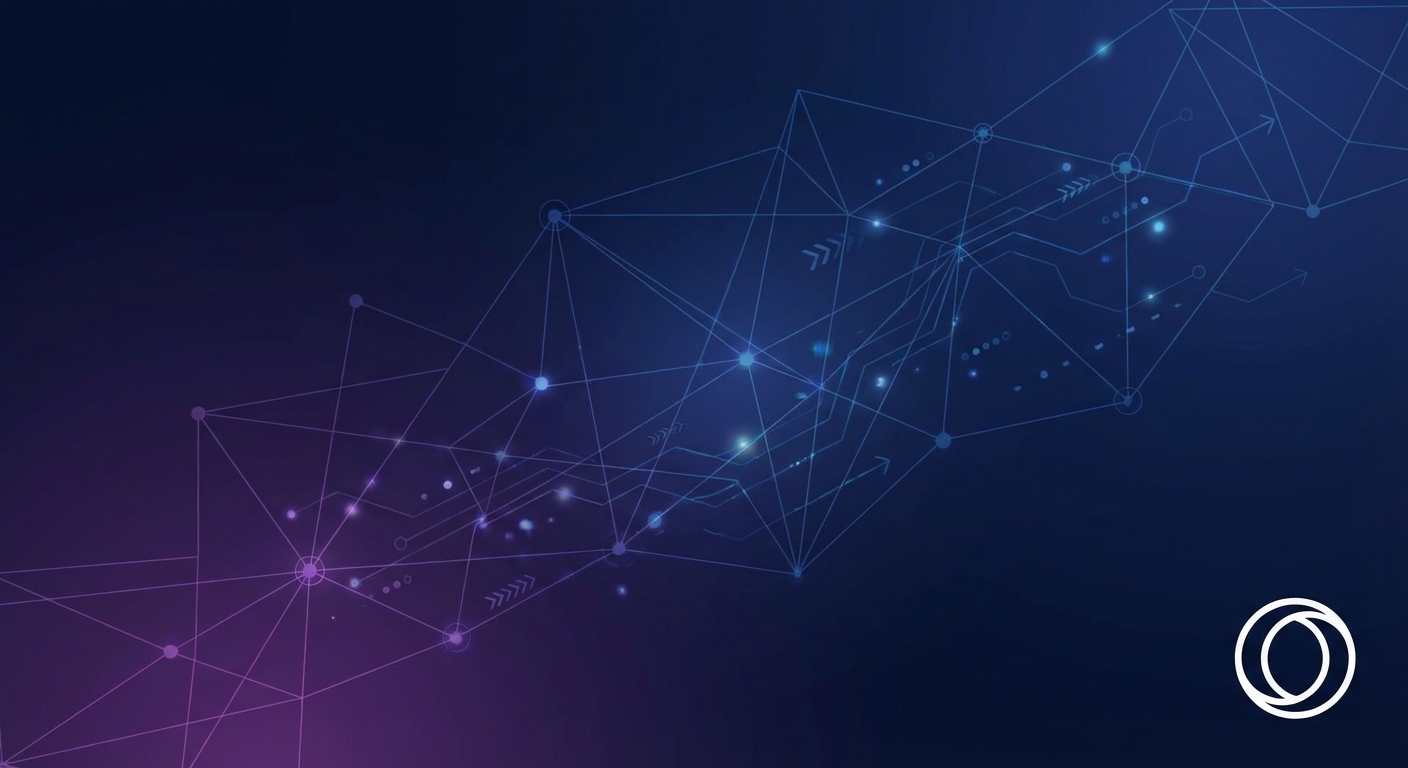Artificial Intelligence in Elections and Campaigns
TL;DR
The Expanding Role of AI in Political Campaigns
Okay, so ai in elections, huh? Seems like something outta a sci-fi movie, but it's very much here. It's not just about some robots running for office – though, honestly, who knows what the future holds?
- Data mining is, like, the new black: Campaigns can use ai to sift through tons of info to figure out where different voters stand. They can then predict voter behavior. Think of it as knowing what kinda pizza to offer before you even knock on the door.
- Personalization, personalization, personalization: This ain't your grandma's "one size fits all" messaging. Ai can tailor messages to resonate with specific voter segments. It's like having a convo designed just for them.
- Targeting success stories: Ai analytics isn't just theory, you know? Political groups are using this to find out what the people want and then deliver. For example, a campaign might use ai to identify voters who are highly engaged on environmental issues and then send them targeted messages highlighting the candidate's green policies. This can lead to higher turnout among specific demographics. (Using AI for Political Polling - Ash Center)
Ai can automate responses to voters, help manage social media, and get info out there. It's not always perfect, but it's definitely efficient.
It's kinda like having a super-powered intern who never sleeps... but you still gotta double-check their work.
The Cybersecurity and Infrastructure Security Agency (CISA) warns that AI-enhanced phishing emails are effective at tricking people into giving up credentials. Campaigns might leverage this by using AI to craft highly personalized, convincing emails that mimic trusted sources, aiming to either gather voter data or spread misinformation. Conversely, campaigns themselves can be targets of such attacks, with sophisticated AI-generated phishing attempts designed to steal sensitive campaign information. (FBI Releases URGENT Cybersecurity Warning On The ...)
Politicians aren't just talking about ai. It's in action, and it's being used to get their name out there. Steve Endacott, a candidate in the UK, used an ai avatar called "ai Steve" to interact with voters. His goal was to find out what people wanted from him and then to make an action plan based on their suggestions.
The Dark Side: AI-Driven Disinformation and Manipulation
Okay, so ai disinformation – kinda scary, right? It's not just about some goofy memes; it can actually mess with how we see elections.
It's like, ai is now this super-powered tool for spreading fake news fast. Social media algorithms? They can amplify this stuff – and that's not good. It’s not just individual actors anymore, but entire networks using bots and deepfakes to flood the internet with stuff that is not true.
A 2024 report from the European Board of Digital Services found limited use of ai in disinformation campaigns. While this report suggests current usage might be limited, the potential for AI to rapidly generate and disseminate convincing fake content means we must remain prepared for its future impact.
Think about deepfakes – they're getting harder to spot. It can be hard to tell what's real or what isn't. And that’s just the beginning – ai can be used to generate fake news articles, manipulate videos, and even clone voices.
Some states are trying to counter this with disclaimers. The idea is that if people know something's ai-generated, they'll be more skeptical. But that might backfire, as Chris McIsaac from the R Street Institute points out, if everything without a disclaimer is seen as trustworthy. This creates a false sense of security for genuine content and could be exploited.
# This is a conceptual illustration of AI detection, not a functional tool.
# Real AI detection involves complex algorithms and machine learning models.
def conceptual_ai_detection(content):
"""
A placeholder function to illustrate the idea of AI detection.
In reality, this would involve sophisticated analysis.
"""
print("Analyzing content for potential AI generation...")
# In a real scenario, this would involve checking for patterns,
# linguistic anomalies, or using pre-trained models.
# For this illustration, we'll just pretend.
if "AI" in content or len(content) > 5000: # Very simplistic check
return "Potentially AI-generated."
else:
return "Likely human-generated."
# Example usage (for illustration only):
# print(conceptual_ai_detection("This is a test message."))
Honestly - it is so easy to get tricked!
And it makes you think about the ethics, right? Like, how do we balance free speech with the need to stop ai-driven manipulation?
It isn't easy, you know?
So, what's the deal with ai getting smarter and sneakier? Next, let's dive into deepfakes and synthetic media.
Regulatory and Ethical Considerations
Okay, so, regulations and ethics... it's like trying to put a leash on a cheetah, right? Everyone agrees it's important, but nobody quite knows how to do it without, you know, getting mauled.
Thing is, right now there's no like, one big ai law for elections. What we got is a patchwork. Some states are trying to regulate deepfakes and stuff, which, good for them!
- State-Level Shenanigans: Some states are stepping up. They're making laws about ai-generated political ads, tryna make sure they got disclaimers. It is like, "Hey, this ain't real, folks!" but it can be tricky, you know?
- Enforcement headaches: Jurisdictions, it's a mouthful is making it really hard to enforce this stuff, ya know? For instance, differing state laws on campaign finance and disclosure create a complex web. Then there's the challenge of federal vs. state authority, and the added layer of international borders if AI-generated content originates from outside the US. This fragmentation makes it incredibly difficult to establish consistent rules and hold bad actors accountable across the board.
And then there's the whole ethics side of things. What's right, what's wrong... it's a minefield!
- Transparency is key: Gotta be upfront about using ai in campaigns. No sneaky stuff!
- Accountability is your BFF: Someone's gotta be responsible for ai messing up. No passing the buck!
So, what happens when ai gets too smart for its own good? As we've seen, Chris McIsaac from the R Street Institute, notes, disclaimers might give a false sense of security. This is because the very act of requiring a disclaimer can inadvertently legitimize content without one, leading voters to trust it more, even if it's misleading.
# This is a conceptual illustration of ethical AI analysis, not a functional tool.
# Real ethical analysis involves complex frameworks and human oversight.
def conceptual_ethical_analysis(data, ethical_guidelines):
"""
A placeholder function to illustrate the idea of applying ethical guidelines.
In reality, this would involve nuanced judgment and specific rules.
"""
print("Applying ethical guidelines to data analysis...")
# In a real scenario, this would involve checking for bias,
# privacy violations, and adherence to fairness principles.
# For this illustration, we'll just pretend.
if "bias" in ethical_guidelines or "privacy" in ethical_guidelines:
print("Potential ethical concerns identified. Further review needed.")
else:
print("Ethical guidelines seem to be met (for this illustration).")
# Example usage (for illustration only):
# ethical_rules = ["privacy", "fairness"]
# conceptual_ethical_analysis({"user_data": "some_info"}, ethical_rules)
Next up, we're taking a look at the wild world of deepfakes.
Combating AI Threats: Strategies for Election Officials and Campaigns
Alright, let's dive into how election officials and campaigns can actually fight back against ai threats. It's not just about sitting back and watching the digital world go crazy, right?
First off, detection and verification tools are crucial. Think of it like this: you wouldn't let just anyone into your house, right? You'd check who they are first. Same goes for info online.
- There's tech out there that's designed to spot deepfakes and other manipulated media. This includes tools that use digital watermarking to track content provenance, or AI models trained to identify subtle inconsistencies in video and audio that humans might miss. Blockchain technology is also being explored for creating tamper-proof records of authentic media.
- And it's not just about fancy software. Good old critical thinking is still super important. Does the source look legit? Does the info hold up when you compare it to other sources? If it sounds too crazy to be true, it probably is.
- Election officials, fact-checkers, and tech companies gotta work together on this. It's like a neighborhood watch, but for the internet.
Then there's public awareness and media literacy. You can't expect people to fight fake news if they don't even know what it is or how to spot it, ya know?
- We gotta teach people – especially younger voters – about ai-driven disinformation. How it works, how to spot it, and why it matters. Make it part of the curriculum in schools.
- Promote critical thinking skills. Encourage folks to ask questions, analyze sources, and think for themselves. Don't just blindly believe everything you see online.
- Get communities involved. Encourage people to report suspicious content, and make it easy for them to do so.
You know, it's a multi-pronged approach.
Moving forward, it's essential to continue developing and implementing these detection and verification strategies.
The Future of AI in Elections: Opportunities and Challenges
Okay, so, wrapping things up, huh? It's kinda like trying to predict the weather – you can get a decent idea, but there's always gonna be a surprise thunderstorm.
- AI's getting smarter, faster. We're talking about ai that can generate realistic content, analyze data at warp speed, and personalize messages to a scary degree. Imagine campaigns using ai to create interactive experiences that adapt in real-time to voter reactions. For instance, custom AI agents could be deployed to simulate voter conversations, helping campaigns refine their messaging based on predicted responses.
- Opportunities abound. Think ai-powered tools that help election officials manage voter registration, detect fraud, and even translate election materials into multiple languages. It could make things way more efficient, you know?
- But, uh, risks are real. What if ai is used to spread disinformation, manipulate voters, or even launch cyberattacks on election systems? We need to be proactive and put safeguards in place, like NOW.
I was checking out Compile7 the other day, and they're doing some interesting stuff with custom ai agents. They basically build ai tools that can automate a ton of tasks.
- They can build agents for data analysis, content creation, and even personalized voter outreach. For example, a custom agent could analyze vast datasets of public opinion to identify key concerns in specific districts, allowing campaigns to tailor their platforms more effectively.
- It's like having a super-powered assistant that never sleeps – helping campaigns run smoother.
- Compile7 develops custom ai agents that automate tasks, enhance productivity, and transform how your business operates. Learn more at https://Compile7.com
So, yeah, the future of ai in elections is a mix of opportunity and peril. We gotta be smart, stay vigilant, and make sure we're using this technology for good, not evil.




